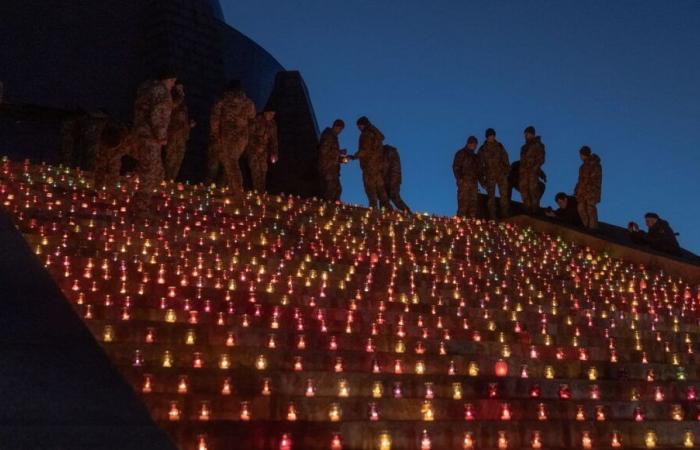We could call it the “Trump effect”: the candidate, now president-elect of the United States, had sworn that he would resolve the war in Ukraine in “24 hours”, even before taking office. Instead, we are witnessing a sudden escalation, both on the ground and in threats, until once again we see that of the ultimate weapon, nuclear power.
No doubt it is not so contradictory, and the current excitement is partly due to the upcoming change of course in Washington: each of the protagonists wants to strengthen its position before this new phase with this unpredictable president. But it is also an escalation which has its own logic, at the risk of becoming dangerously uncontrolled.
The last two announcements have actually increased the risks. That, which arrives after months of hesitation, of Joe Biden authorizing the firing of Ukrainian long-range missiles against military targets on Russian territory; immediately announced and already taken into action – and that of Vladimir Putin who broadens the rules of engagement for nuclear weapons, this is not the first time he has threatened since his invasion of Ukraine in February 2022, but it always has its effect.
After almost three years of war, there is a moment of truth approaching. Vladimir Putin completely failed in the first phase which he thought he would resolve in a few weeks; but he reorganized himself, oriented his entire immense country towards the war effort, received support in arms and ammunition from Iran, and even in men from North Korea. He also benefited from the Westerners' difficulty in following, both in terms of quantity of ammunition and anti-aircraft systems, and also in delaying the decision as we saw with Joe Biden.
A war doesn't stop until one side or the other thinks they can win. Putin is in this case, having more resources, more cannon fodder, more cynicism too, than his adversaries, not hesitating to strike the cities. And he is banking on the hostility of the future Trump administration and his allies in Europe, like the Hungarian Viktor Orban, to clip the Ukrainians' wings and force them into a deal that respects the advantage he has today over the land.
This period is decisive for Ukraine. Ukrainian resistance is put to the test, firstly by Russia's incessant bombings which deprive part of its population of electricity and heating, by the incessant erosion of its positions in the East, and by the stress of see its external support falter.
Part of Europe does not want to let go of Ukraine, believing that a Putin victory would put the entire security of the European continent at risk. But the pro-Ukrainians led by Poland know that they do not have the means to help Ukraine alone. They will therefore have to convince the next Trump administration that it is not in their interest to make Ukraine capitulate.
It is in this complex context that this sudden escalation is occurring, including with the nuclear threat stirred up by Putin, which we cannot ignore but also cannot really take seriously. The only certainty is that in two months, a new administration will be installed in Washington, and the cards will be reshuffled – until then, the war retains all its rights.






